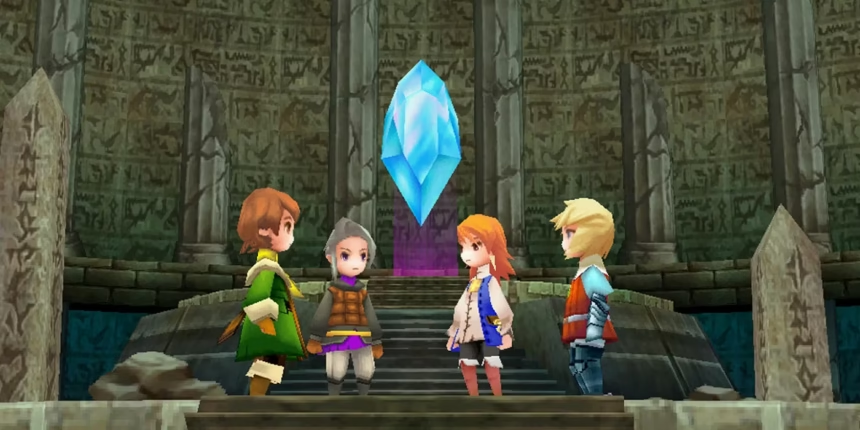Have you ever wondered why it’s called Final Fantasy? This legendary piece of video game history has a rich history to back it up. Back in 1987, the game developer Square was on the brink of bankruptcy, and its creator, Hironobu Sakaguchi, believed it would be his last project before leaving the industry. That desperate, last-ditch effort became the foundation for the Final Fantasy franchise, a series that would redefine role-playing games and become a cornerstone of global pop culture.
A Gamble That Redefined an Industry
The original game was a Hail Mary pass, but it connected. It introduced players to crystals, magic, and airships, wrapping it all in a compelling story with a musical score that was far more ambitious than anything else on the Nintendo Entertainment System. This formula—emotional storytelling, memorable characters, and groundbreaking music—became the brand’s DNA. But the series truly broke into the mainstream with its seventh installment.
Final Fantasy I, II, and III laid the groundwork with turn-based combat and iconic elements like Chocobos and Moogles, but they were limited by tech. By the time Final Fantasy IV hit the Super Nintendo in 1991, the series leveled up with the Active Time Battle system and deeper narratives, pulling US players into its orbit.
The jump to the Sony PlayStation for Final Fantasy VII in 1997 was a seismic shift. Leaving its long-time home at Nintendo, Square took a massive risk to leverage the power of the CD-ROM. This allowed for pre-rendered backgrounds and stunning cinematic cutscenes that felt like a movie, creating an immersive experience that sold over 10 million copies worldwide and helped cement the PlayStation as the dominant console of its generation. It was a game-changer with 3D graphics and a gripping story, and it made RPGs mainstream in the West. This decision proved that video games could deliver complex, emotionally mature narratives that resonated with millions.
It Keeps Growing
What’s crazy is how Final Fantasy stays fresh. Each mainline game—16 and counting—tells a new story, from steampunk skies to dystopian cities, keeping fans hooked across generations. Final Fantasy XIV, the MMO, has millions of active players, with Reddit threads buzzing about its latest expansions. At the series’ 35th anniversary, it’s still pushing boundaries with remakes and mobile spin-offs.
Square Enix tapped into e-commerce, selling everything from soundtracks to Chocobo plushies. By 2024, the franchise had grossed $20 billion, with $2 billion from merch and media alone, per Video Game Sales Wiki. Fans rave about snagging limited-edition Final Fantasy XIV art books or VII Remake figurines online, showing how e-commerce lets Square Enix keep the hype alive year-round.
The Secret to Longevity
So, how does a franchise stay on top for over three decades? By refusing to stand still. Unlike series that stick to one world or a continuous timeline, each core Final Fantasy game is a clean slate. This strategy allows creators to experiment wildly, moving from the classic medieval fantasy of Final Fantasy IX to the futuristic sci-fi metropolis of Final Fantasy XIII without alienating its audience.
This philosophy of reinvention is best seen in its online games. When Final Fantasy XIV launched in 2010, it was a critical and commercial disaster. Instead of abandoning it, Square did the unthinkable: they publicly apologized, shut the game down, and completely rebuilt it from the ground up. The re-release became one of the most beloved MMOs of all time. For many people, it was a powerful lesson in brand resilience and listening to your community. Since then, the brand has evolved from a single game into a multi-billion-dollar cultural phenomenon, consolidating its iconic Chocobos and its world-touring Distant Worlds symphony orchestra. That “final” fantasy, it turns out, was just the beginning.
Final Thoughts
This franchise’s journey from a pixelated gamble to a global empire is straight-up inspiring. Many people can learn from it, such as what happens when passion meets innovation. With e-commerce keeping the fandom stocked, Final Fantasy isn’t slowing down anytime soon.







